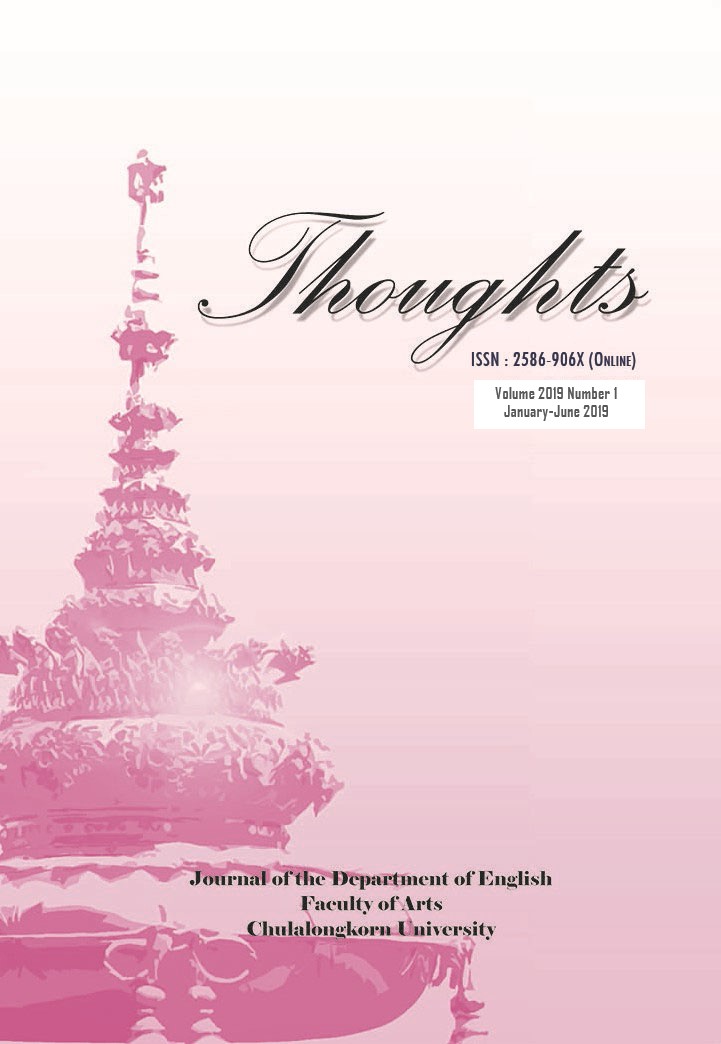The Subject of Satire: The Stigmatization of Eliza Haywood and the Amatory Novel in the Misogynistic Satires of Richard Savage and Alexander Pope
Keywords:
Neoclassical, novel, Haywood, Pope, Savage, satire, gender discrimination, Eighteenth centuryAbstract
The present age [...] may be stiled [sic] with great propriety THE AGE OF AUTHORS; for, perhaps, there never was a time, in which men of all degrees of ability, of every kind of education, of every profession and employment, were posting with ardour so general to the press. […] In former times, the pen, like the sword, was considered as consigned by nature to the hands of men; the ladies contented themselves with private virtues and domestick [sic] excellence; and a female writer, like a female warrior, was considered as a kind of eccentrick [sic] being, that deviated, however illustriously, from her due sphere of motion, and was, therefore, rather to be gazed at with wonder, than countenanced by imitation. But as in the times past are said to have been a nation of Amazons, who drew the bow and wielded the battle-axe, formed encampments and wasted nations, the revolution of years has now produced a generation of Amazons of the pen, who with the spirit of their predecessors have set masculine tyranny at defiance, asserted their claim to the regions of science, and seem resolved to contest the usurpations of virility (Johnson, 1753).
References
Clery, E. J. (2004). The Feminization Debate in Eighteenth - Century England: Literature, Commerce and Luxury. Hampshire: Palgrave Macmillan.
Fairer, D., & Gerrard, C. (Eds.). (2005). Eighteenth-Century Poetry: An Annotated Anthology. Sussex: John Wiley & Sons.
Gerrard, C. (2004). Sansom, Martha. Retrieved from https://doi.org/10.1093/ref:odnb/45816
Haywood, E. (1725). The Fatal Secret: or, Constancy in Distress. Retrieved from https://digital.library.upenn.edu/ women/haywood/fatal/fatal.html
Pettit, A., Croskery, M. C., & Patchias, A. C. (Eds.). (2004). Fantomina and Other Works. Ontario: Broadview.
Haywood. (1994). Love in Excess: or, The Fatal Enquiry.(D. Oakleaf, Ed.). Ontario: Broadview.
Hume, D. (2008). An Enquiry concerning Human Understanding. Oxford: Oxford UP.
Ingrassia, C. (2005). Authorship, Commerce, and Gender in Early Eighteenth-Century England. New York: Cambridge UP.
Johnson, S. (1753). Essay No. 115. The Itch of Writing Universal. Retrieved from https://www.johnsonessays.com/the-adventurer/no-115-the-itch-of-writing-universal/
King, K.R. (2013). Scribal and Print Publication. In R. Ballaster (Ed.), The History of British Women’s Writing: Vol. 4. The History of British Women’s Writing, 1690 - 1750. Hampshire: Palgrave Macmillan.
Nussbaum, F. A. (1984). The Brink of All We Hate: English Satires on Women 1660 - 1750. Lexington: Kentucky UP.
Pope, A. (1728). The Dunciad. An Heroic Poem. In Three Books. Dublin: A.
Dodd.
Pope, A. (1729) The Dunciad with Notes Variorum, and the Prolegomena of
Scriblerus. London: Lawton Gilliver.
Pope, A. (1749). The Dunciad, Complete, in Four Books, According to Mr. Pope’s last Improvements. With several additions now first printed, and the Dissertations on the Poem and the Hero, and notes variorum. London: J. And P. Knapton.
Savage, R. (1725). The Authors of the Town; A Satire. In D. Oakleaf (Ed.), Love in Excess: or, The Fatal Enquiry (pp. 282-283). Ontario: Broadview.
Smith, E. (1985). A Dictionary of Classical Reference in English Poetry. New Jersey: Barnes & Noble.
Spedding, P. (2011). Portrait of Eliza Haywood. Retrieved from
https://patrickspedding.blogspot.com/2011/10/james-partmentier-portrait-of-eliza.html
Sterling, J. (1732). To Mrs. Eliza Haywood on Her Writings. In D. Oakleaf (Ed.), Love in Excess: or, The Fatal Enquiry (p. 279. Ontario: Broadview
Turner, C. (1994). Living by the Pen: Women Writers in the Eighteenth Century. London: Routledge.
Vertue, G. after J. Partmentier (1720-1725). Eliza Haywood (née Fowler).
National Portrait Gallery, London. Retrieved from https://npgimages.com/en/search/do_quick_search.html?q=eliza+haywood
Downloads
Published
Issue
Section
License
Copyright by the Faculty of Arts, Chulalongkorn University.
Photocopying is allowed for internal, non-commercial use only. Photocopying for other uses or for purposes other than indicated must be permitted in writing from the Faculty of Arts, Chulalongkorn University.
All views or conclusion are those of the authors of the articles and not necessarily those of the publisher or the editorial staff.


